- Home
- L. Frank Baum
Mary Louise and the Liberty Girls Page 8
Mary Louise and the Liberty Girls Read online
Page 8
shop. It was evident there would be a crowd atthe formal "opening," for much was expected from the unique enterprise.
Meantime, the girls were busily occupied. Each day one group soliciteddonations while another stayed at the store to arrange the goods. Manyarticles of furniture, more or less decrepit, were received, and a manwas hired to varnish and patch and put the chairs, stands, tables,desks and whatnots into the best condition possible. Alora Jonesthought the stock needed "brightening," so she induced her father tomake purchases of several new articles, which she presented the girlsas her share of the donations. And Peter Conant, finding many smallpieces of jewelry, silverware and bric-a-brac among the accumulation,rented a big showcase for the girls, in which such wares were properlydisplayed.
During these ten days of unflagging zeal the Liberty Girls were annoyedto discover that another traitorous circular had been issued. A largecontingent of the selective draft boys had just been ordered away tothe cantonment and the day before they left all their parents receiveda circular saying that the draft was unconstitutional and that theirsons were being sacrificed by autocratic methods to further thepolitical schemes of the administration. "Mr. Wilson," it ended, "istrying to make for himself a place in history, at the expense of theflesh and blood of his countrymen."
This vile and despicable screed was printed from the same queer type asthe former circulars denouncing the Liberty Bond sale and evidentlyemanated from the same source. Mary Louise was the first to secure oneof the papers and its envelope, mailed through the local post-office,and her indignation was only equalled by her desire to punish theoffender. She realized, however, her limitations, and that she hadneither the time nor the talent to unmask the traitor. She could onlyhope that the proper authorities would investigate the matter.
That afternoon, with the circular still in her handbag, she visited theclothing store of Jacob Kasker and asked the proprietor if he had anygoods he would contribute to the Liberty Girls' Shop.
Kasker was a stolid, florid-faced man, born in America of naturalizedGerman parents, and therefore his citizenship could not be assailed. Hehad been quite successful as a merchant and was reputed to be thewealthiest clothing dealer in Dorfield.
"No," said Kasker, shortly, in answer to the request. Mary Louise wasannoyed by the tone.
"You mean that you _won't_ help us, I suppose?" she said impatiently.
He turned from his desk and regarded her with a slight frown. Usuallyhis expression was stupidly genial.
"Why should I give something for nothing?" he asked. "It isn't my war;I didn't make it, and I don't like it. Say, I got a boy--one son. Doyou know they've drafted him--took him from his work without hisconsent, or mine, and marched him off to a war that there's no goodexcuse for?"
"Well," returned Mary Louise, "your boy is one of those we're trying tohelp."
"You won't help make him a free American again; you'll just help givehim knickknacks so he won't rebel against his slavery."
The girl's eyes flashed.
"Mr. Kasker," she said sternly, "I consider that speech disloyal andtraitorous. Men are being jailed every day for less!"
He shrugged his shoulders.
"I believe that is true, and it proves what a free country thisis--does it not? Mr. Wilson's democracy is the kind that won't allowpeople to express their opinions, unless they agree with him. If I sayI will stand by the American constitution, they will put me in jail."
Mary Louise fairly gasped. She devoutly wished she had never approachedthis dreadful man. She felt ashamed to breathe the same air with him.But she hated to retreat without a definite display of her disgust athis perfidious utterances. Drawing the circular from her bag she spreadit before him on his desk and said:
"Read that!"
He just glanced at it, proving he knew well its wording. Mary Louisewas watching him closely.
"Well, what about it?" he asked brusquely.
"It expresses your sentiments, I believe."
He turned upon her suspiciously.
"You think I wrote it?" he demanded.
"My thoughts are my own," retorted Mary Louise.
Kasker's frown deepened.
"Your thoughts may get you into trouble, my girl," he said slowly. "Letme tell you this: However much I hate this war, I'm not fighting itpublicly. To you I have spoken in private--just a private conversation.The trouble with me is, I talk too much; I don't know enough to keep mymouth shut. I guess I'll never learn that. I ain't a hypocrite, and Iain't a pacifist. I say the United States must win this war because ithas started the job, and right or wrong, must finish it. I guess wecould beat the whole world, if we had to. But I ain't fool enough tosay that all they do down at Washington is right, 'cause I know itain't. But I'm standing by the flag. My boy is standing by the flag,and he'll fight as well as any in the whole army to keep the flagflying over this great republic. By and by we'll get bettercongressmen; the ones we got now are accidents. But in spite of allaccidents--and they're mostly our own fault--I'm for America first,last and all the time. That's Jake Kasker. I don't like the Germans andI don't like the English, for Jake Kasker is a George WashingtonAmerican. What are you doing, girl?" he suddenly asked with a change oftone.
"I'm putting down that speech in shorthand in my notebook," said MaryLouise, "and I think I've got every word of it." She slipped the bookin her bag and picked up the circular. "Good afternoon, Mr. Kasker!"
The German seemed bewildered; he ran his fingers through his bushy hairas if trying to remember what he had said.
"Wait!" he cried, as she turned away. "I've changed my mind about thosegoods; I'll send some over to your shop to be sold."
"Don't do it," she replied, "for we won't accept them. Only those whosepatriotism rings true are allowed to help us."
Then she marched out of the big store, the proprietor at the deskstaring at her fixedly until she had disappeared.
"That's it, Jake," he said to himself, turning to his papers; "you talktoo much. If a man prints a thing, and nobody knows who printed it,he's safe."
CHAPTER VIIITHE DETECTIVE'S DAUGHTER
"I'm pretty sure, Gran'pa Jim," said Mary Louise that evening, "thatI've trailed the traitor to his lair, and he's none other than--JakeKasker!"
This was the first time she had mentioned her suspicion of Kasker tohim, and her statement was received by the colonel with moderatesurprise, followed by a doubtful smile.
"I know Jake," he remarked, "and while he is uneducated and his mind isunformed concerning most things outside the clothing business, I shouldhesitate to accuse him of downright disloyalty."
"He's a German, and sympathizes with the Kaiser," asserted Mary Louise.
"Did he say that?"
"Well, not in so many words."
"A German-American is not usually pro-German," the colonel declared,"for Germans who come to America come to escape the militarism andpaternalism of the Junkers, which is proof in itself that theydisapprove of what we term kaiserism. I know that Kasker talksfoolishly against the war and resents the drafting of his son, but Ithink he is a good American at heart. He has bought Liberty Bonds moreliberally than some who proclaim their patriotism from the housetops. Idon't fear these outspoken objectors, my dear, as much as those whowork slyly in the dark--such as the writers of those disgracefulcirculars."
"I practically accused Kasker of sending out those circulars," saidMary Louise, "and his defense was very lame and unconvincing. Listen,Grand'pa, to what he said. I took the speech down in shorthand, andthat worried him, I'm sure."
The colonel listened and shook his head gravely.
"Yes, Jake Kasker talks too much," he confessed, "and much that he saysis disloyal to our government and calculated to do much harm,especially if widely circulated. This is no time to criticise the menwho are working hard to win the war; we should render them faithfulsupport. The task before us is difficult and it will require a unitedcountry to defeat our enemies. I must talk to Jake Kasker."
"Won't it be better to l
et the authorities deal with him?" suggestedthe girl. "They're certain to get him, in time, if he goes on this way.I believe I frightened him a bit this afternoon, but he's too dull totake warning. Anyhow, I shall relate the whole interview to ChiefFarnum to-morrow morning."
This she did, but the Chief gave her little satisfaction.
"No one pays any attention to Kasker," he said.
"He's a German, and a traitor!" she insisted. "A woman's intuition isseldom at fault, and

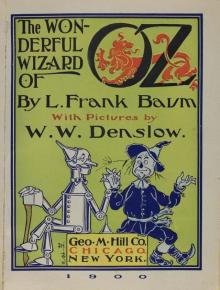 The Wonderful Wizard of Oz
The Wonderful Wizard of Oz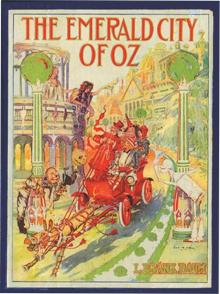 The Emerald City of Oz
The Emerald City of Oz The Story of Peter Pan, Retold from the fairy play by Sir James Barrie
The Story of Peter Pan, Retold from the fairy play by Sir James Barrie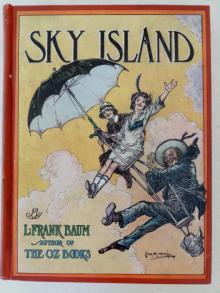 Sky Island
Sky Island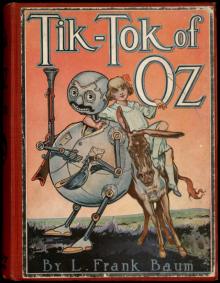 Tik-Tok of Oz
Tik-Tok of Oz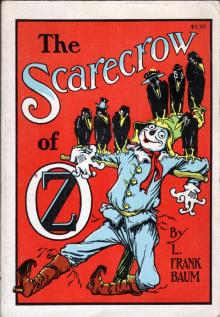 The Scarecrow of Oz
The Scarecrow of Oz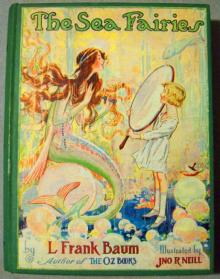 The Sea Fairies
The Sea Fairies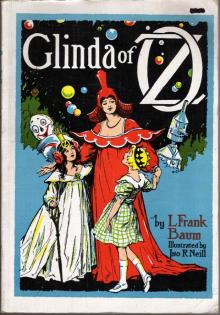 Glinda of Oz
Glinda of Oz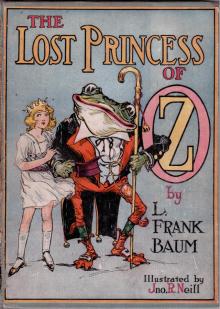 The Lost Princess of Oz
The Lost Princess of Oz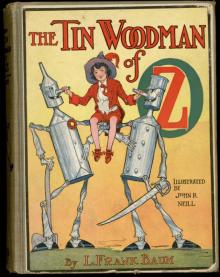 The Tin Woodman of Oz
The Tin Woodman of Oz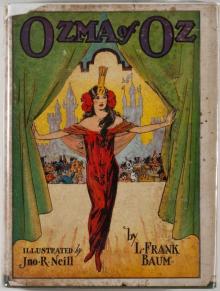 Ozma of Oz
Ozma of Oz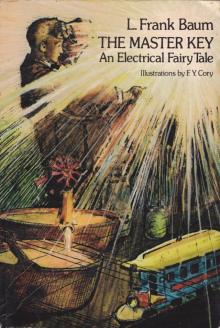 The Master Key
The Master Key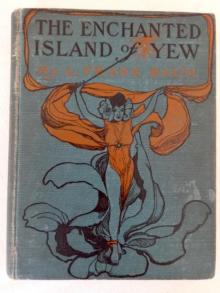 The Enchanted Island of Yew
The Enchanted Island of Yew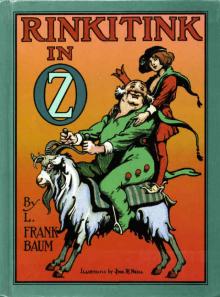 Rinkitink in Oz
Rinkitink in Oz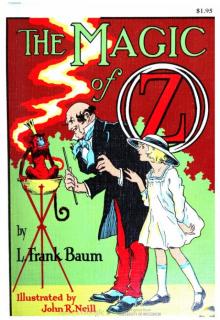 The Magic of Oz
The Magic of Oz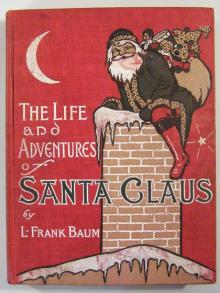 The Life and Adventures of Santa Claus
The Life and Adventures of Santa Claus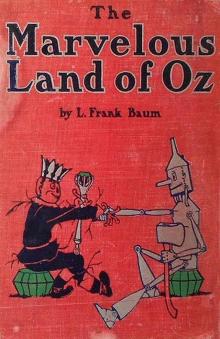 The Marvelous Land of Oz
The Marvelous Land of Oz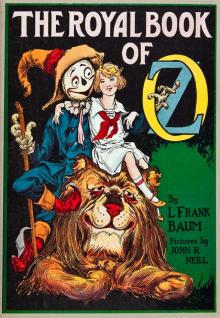 The Royal Book of Oz
The Royal Book of Oz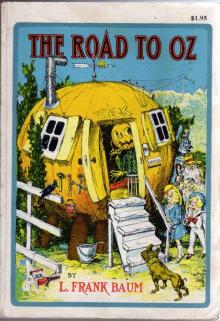 The Road to Oz
The Road to Oz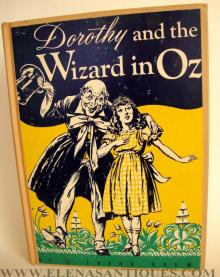 Dorothy and the Wizard in Oz
Dorothy and the Wizard in Oz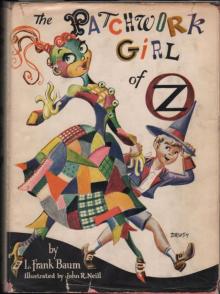 The Patchwork Girl of Oz
The Patchwork Girl of Oz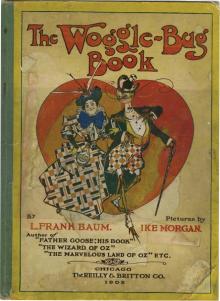 The Woggle-Bug Book
The Woggle-Bug Book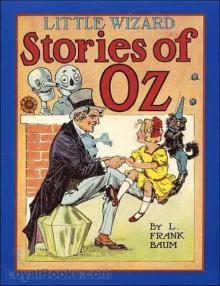 Little Wizard Stories of Oz
Little Wizard Stories of Oz Yankee in Oz
Yankee in Oz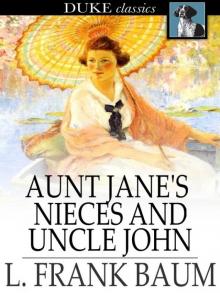 Aunt Jane's Nieces and Uncle John
Aunt Jane's Nieces and Uncle John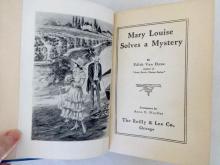 Mary Louise
Mary Louise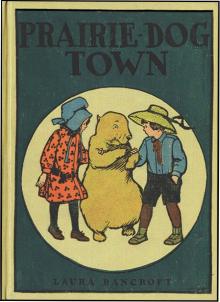 Prairie-Dog Town
Prairie-Dog Town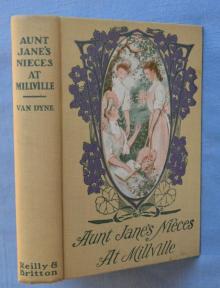 Aunt Jane's Nieces at Millville
Aunt Jane's Nieces at Millville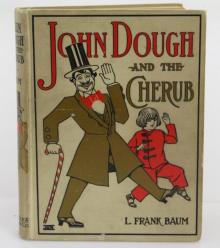 John Dough and the Cherub
John Dough and the Cherub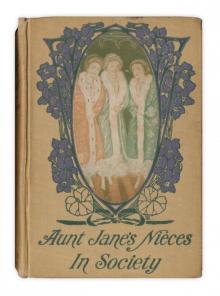 Aunt Jane's Nieces in Society
Aunt Jane's Nieces in Society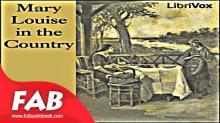 Mary Louise in the Country
Mary Louise in the Country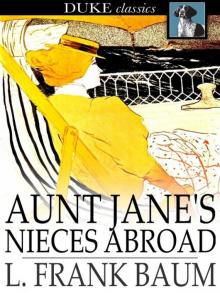 Aunt Jane's Nieces Abroad
Aunt Jane's Nieces Abroad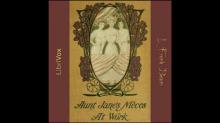 Aunt Jane's Nieces at Work
Aunt Jane's Nieces at Work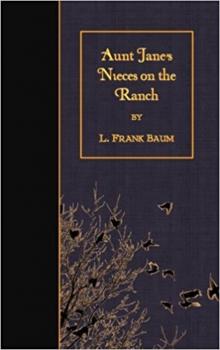 Aunt Jane's Nieces on the Ranch
Aunt Jane's Nieces on the Ranch Aunt Jane's Nieces in the Red Cross
Aunt Jane's Nieces in the Red Cross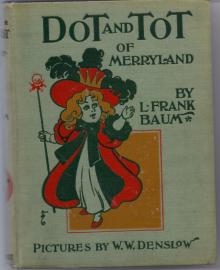 Dot and Tot of Merryland
Dot and Tot of Merryland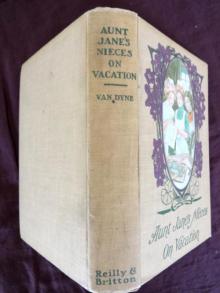 Aunt Jane's Nieces on Vacation
Aunt Jane's Nieces on Vacation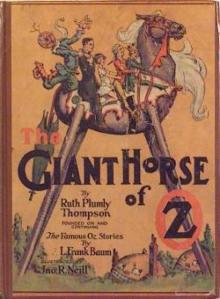 The Giant Horse Of Oz
The Giant Horse Of Oz The Hidden Valley of Oz
The Hidden Valley of Oz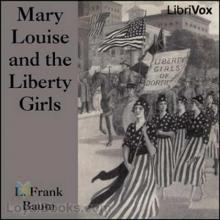 Mary Louise and the Liberty Girls
Mary Louise and the Liberty Girls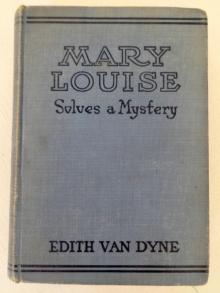 Mary Louise Solves a Mystery
Mary Louise Solves a Mystery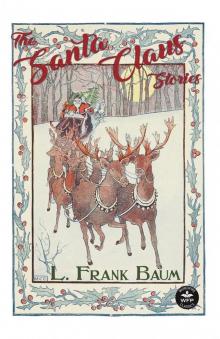 The Santa Claus Stories
The Santa Claus Stories Aunt Judith: The Story of a Loving Life
Aunt Judith: The Story of a Loving Life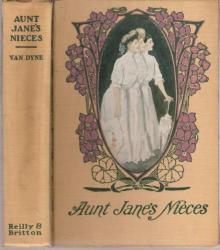 Aunt Jane's Nieces
Aunt Jane's Nieces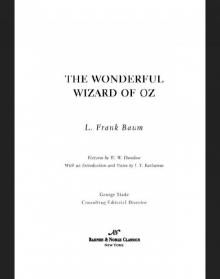 Wonderful Wizard of Oz (Barnes & Noble Classics Series)
Wonderful Wizard of Oz (Barnes & Noble Classics Series) Oz, The Complete Collection
Oz, The Complete Collection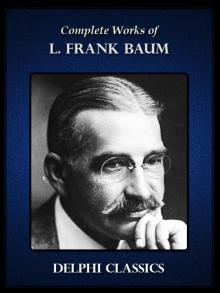 Complete Works of L. Frank Baum
Complete Works of L. Frank Baum The Wizard of Oz
The Wizard of Oz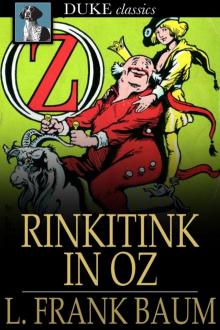 Oz 10 - Rinkitink in Oz
Oz 10 - Rinkitink in Oz